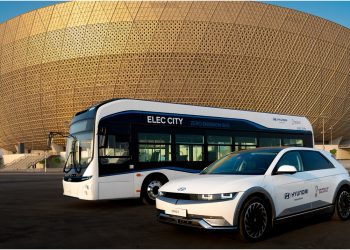The impact that motorsports has on people can go a long way towards a solid path to full electrification within the automotive sector, as the capability to see how sustainable vehicles perform under demanding conditions may convince many people to opt for them.
This generates one of many theories about how motorsports can benefit automakers. Precisely, that was one of the topics developed during the 2nd Green Racing Virtual Summit, where Massimo Bercella (CEO of Bercella SRL), Eric Morley (COO and Co-Founder of Blue C), Javier Alonso (Motorsports Director at QEV Technologies) and Nate Schroede (Director of Special Projects at Our Next Energy, Inc), held an interesting debate led excellently by Bill Beverley (Co-Founder and CEO of Evollectric).
Bercella is a leading Italian company for design, engineering, state-of-the-art solutions and manufacturing of racing ride parts and seats. They have produced over 1,500 chassis for various championships (Formula 2, Formula E, IndyCar, LeMans, among others).
Related content: GRN Summit: Extreme E, Pure ETCR, eSkootr and Enel X Chart The Future of Motorsports
“Over the past 5 years, we have evolved in electric racing by working with multiple carbon fiber parts for ABB FIA Formula E. Enabling light weight while providing a safe structure for the drivers competing in these championships is one of the objectives.”, said Massimo.
“We have been involved in motorsport for many years,” stated Eric Morley before providing his views on motorsport and the automotive industry.
“Electromobility and electric racing are the future. There is nothing that can survive and it’s not sustainable. We have to adapt to what the market and everyone wants,” said Javier Alonso, who has more than 25 years of experience in the motorsport sector and is convinced that we currently have a great opportunity to demonstrate that electrified racing is possible, with Formula E, Extreme E as an example.
How Motorsports Can Benefit Car Manufacturers
For Maximo Bercella, the future is electric. “They definitely have to pay attention to the motorsports sector for many reasons. They have the challenge to motivate themselves to be the best, to develop technologies.”
Furthermore, he also pointed out the example of Formula 1 and how carbon fiber parts were transferred into manufacturing cars. They are currently used on electric hypercars, a clear example of how it influences the automotive industry and its builders.
Why motorsports are so important? “They try to make the best zero-emission cars, so if manufacturers didn’t have them, they wouldn’t be able to build a brand, and to generate communications around it,” says Morley.
“Motorsports have to be there. They are the future.”
Javier Alonso
From Alonso’s point of view, starting something new is complicated, using Formula E as an example, with hard times at the beginning, but after years of persistence, and above all, raising awareness, it is now a benchmark for sustainability.
For Nate Schroder, on the other hand, the off-track work of the brands is also important, using what Audi has done as a reference. “I’m very excited about how things have gone from the labs to practices.”
“Electrification gives you the opportunity to be relevant and to focus on progress for the future, and with that, comes a lot of opportunities,” commented Robin Shute concerning the outlook for manufacturers and how they benefit from motorsports. “You have to focus on where EVs are strong, use their strengths and take them into serial products.”
Written by | Ronald Ortega



















